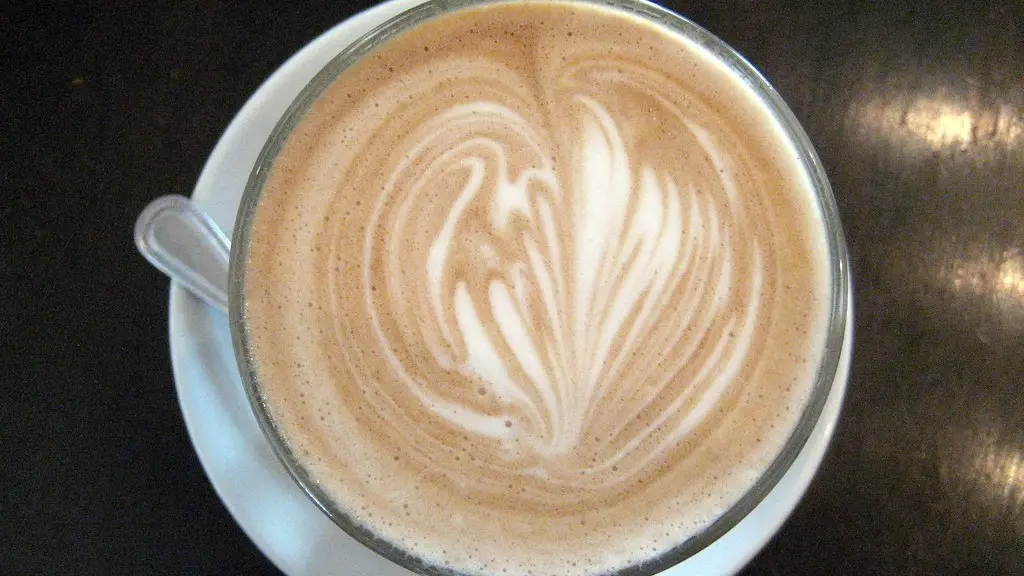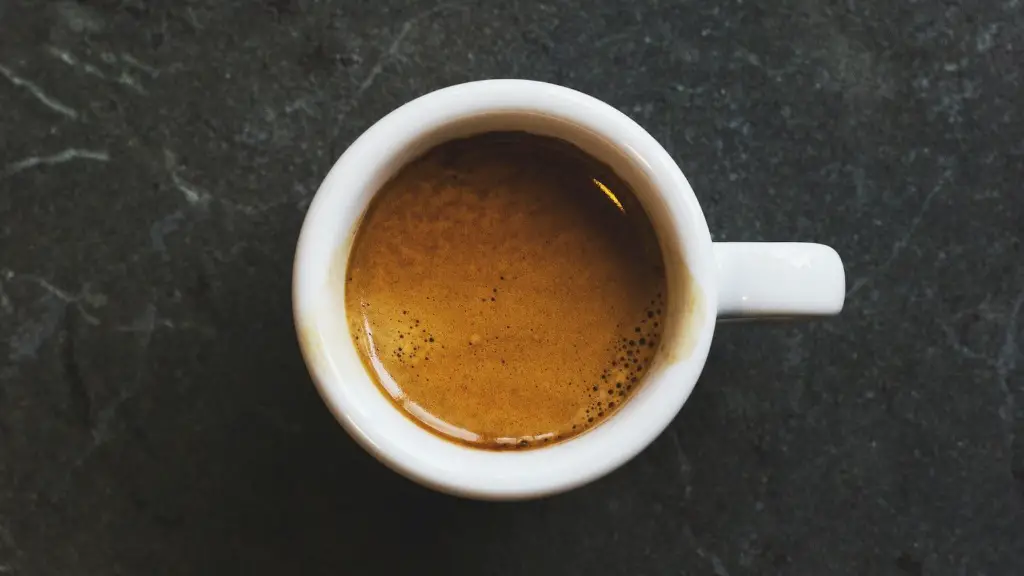Physical Effects
Drinking coffee while on your period can have different physical effects depending on the individual. Caffeine is a stimulant and has been shown to increase the severity of menstrual cramps, giving the cramps a stronger intensity. The high levels of caffeine can cause nausea, headaches and dehydration, as the body will expel more liquid than usual when the caffeine stimulates the body.
Also, coffee is an acidic beverage, meaning that it can also worsen other period-related issues like acid reflux and stomach aches. Paradoxically, too much caffeine can also cause tiredness when taken in large doses. This can be deeply disruptive to the person’s daily activities, making them feel generally fatigued throughout the course of their period-related discomfort.
Mental Effects
Different studies have shown how coffee can have an effect on mental health. Drinking coffee while on your period can make you feel jittery, anxious, and overwhelmed. It can also increase stress levels dramatically, and can be a trigger for people with anxiety disorders. Caffeine can also cause insomnia, interfering with natural sleep patterns, which can in turn affect mood stability.
If taken in larger doses, coffee can cause what is called ‘caffeinism’, a mental disorder caused by excessive consumption of caffeine. This type of disorder can cause psychological symptoms such as restlessness, migraines, insomnia, feelings of guilt and irritability. People affected with caffeinism often feel anxious and uncertain, and find it difficult to concentrate on anything.
Can Coffee Help?
Contrary to popular belief, coffee can actually be a blessing for women on their period. Caffeine is known for masking the pain of cramps, temporarily providing relief for the person. It also has an anti-inflammatory effect, which can be helpful for those suffering from cramps. Coffee can also provide a boost of energy to fight off fatigue.
Coffee can also be a mood-booster, providing a sense of calm and alertness which can help alleviate the effects of PMS. Studies have shown that people who start drinking coffee before their period suffer less from depression, mood swings, and fatigue. Drinking coffee can also help to lessen the feeling of ‘brain fog’ that many people experience in the days prior to their period.
Are There Alternatives?
While coffee can be beneficial and can help to ease the symptoms of PMS, it is not always suitable for everyone. Some people may find that they are sensitive to caffeine and experience an adverse reaction. For these people, alternatives can include decaffeinated coffee or herbal teas, such as chamomile, green tea, ginger or peppermint.
These beverages can be a great way to get the same calming and energizing effect as coffee without the potential side-effects of caffeine. Herbal teas can also be beneficial in providing relief from cramps and other PMS-related symptoms.
Should I Avoid Coffee?
The consensus among experts is that coffee should not be avoided while on your period. Moderate amounts of coffee can be beneficial and can help to alleviate the symptoms of PMS. People who are particularly sensitive to caffeine may need to avoid it, or opt for decaffeinated versions. Alternatively, herbal teas can be consumed to get the same calming and energizing effect.
Drinking copious amounts of coffee should be avoided. Too much caffeine can cause physical and mental disruptions and can exacerbate the symptoms of PMS. It is important to remember that everyone reacts differently to coffee and to be mindful of your own individual needs when deciding whether or not to drink coffee while on your period.
Impact on Nutrition
When you start your period, your body’s digestive system can slow down, leading to hypoglycemia. caffeine can reduce your body’s natural ability to absorb nutrients, vitamins, and minerals because it is a stimulant. This can have an indirect impact on your period, which is the result of hormone and nutrient imbalances. Consuming coffee while on your period can also make it difficult to maintain a balanced diet.
Coffee is also a diuretic, meaning that it can increase dehydration and electrolyte imbalances. This can lead to fatigue, headaches, and general feelings of being unwell. It is important to be aware that the body will require more water and vitamins and minerals to replenish itself during your period.
Coffee is also rich in antioxidants, which are beneficial for overall wellbeing. Antioxidants can help to reduce inflammation, boost immunity and help the body’s natural healing process. However, if coffee is consumed excessively, these benefits can become overpowered by the deleterious effects of dehydration and electrolyte imbalance.
Other Alternatives
If you want to enjoy a hot drink while on your period but are avoiding coffee, there are plenty of other alternatives that can be just as beneficial. Hot chocolate is a great option, as the magnesium in cocoa can help to relieve stress and tension, which is the source of many period-related issues. Hot ginger tea is another great option, as ginger is known for its antispasmodic properties, which can help to reduce cramps and associated pains.
Other hot drinks such as fruit or herbal teas can provide a warm and comforting alternative to coffee. These drinks are also often rich in vitamins and minerals, which can help to replenish the body during a period. It is important to remember that everyone is different and what works for one person may not work for another, so it is important to listen to your body and find out what works for you.
Final Thoughts
Drinking coffee while on your period can be beneficial in some ways, but it can also have a detrimental effect, depending on the individual. Moderate amounts of coffee can provide a temporary relief from cramps and fatigue, but too much caffeine can cause dehydration and irritability. If you find that coffee does not work for you, there are plenty of alternatives that can provide a similar stimulating and energizing effect.
It is important to be aware of your body’s needs, and to find an alternative that works best for you. Whatever the case may be, it is important to be mindful of caffeine intake and to remember to stay hydrated. By listening to your body, you can find the right balance to help you through your period in the best possible way.




